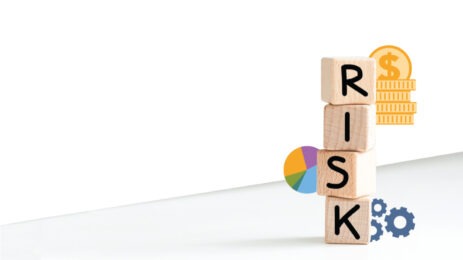Despite the overwhelming desire to get back to normal life, most meeting planners know events will never be quite the same again. Once in-person mass gatherings were restricted, virtual conferences and meetings immediately became the only viable option. That experience won’t just go away. Those responsible for events need to evolve to meet that new reality. The future is hybrid.
More: 3 Innovative Ways Industry Groups are Going Virtual
In an informal survey held during Global Meeting Industry Day in April, 62 percent of event planners said their events will be a hybrid-style moving forward, while 18 percent said there will be a greater demand for virtual-only events. That’s an 80 percent uptick in the prevalence of virtual events.
Making that shift successfully will require asking the right questions.
What are the KPIs?
Not unlike our pre-coronavirus world, planners must determine the purpose and goals of their event before they start sending out RFPs. You are simply flying blind if you start looking for venues and vendors without understanding the event’s needs and objectives. But now there are added elements to consider. The planner needs to consider exactly how a virtual component ties in with live event production.
In that first phase of determining why you’re having the event, include a discussion about the virtual side. What role does it play and how does it support the purpose and objectives of the live event? It can no longer be pushed out to be part of the AV planning or as a last-minute add-on to help with the revenue stream or to address accessibility issues.
Who Will Manage the Virtual Component?
Within a live event there are numerous roles. The meeting planner/event producer plays the role of the project manager. This person assembles the necessary team to address any and all issues connected to the event: venue, F&B, content, speakers, entertainment, AV, registration, marketing, sponsorship and exhibiting, just to name a few.
The virtual component of an event is no different. Someone needs to take the lead and assemble the necessary team required to ensure the virtual component goes off without a hitch. They work in parallel with the event producer. To expect the event producer to take on full responsibility of both the live and virtual sides is likely to result in one person being spread too thin and, inevitably, some element of the event will suffer.
The following roles are key to the success of a virtual event. Note: a single individual could take on more than one role.
Overall Producer: Coordinates with all the players on the team. Sets expectations. They are the driving force behind the virtual conference production.
Virtual Conference Platform Specialist: Manages the tool used to create on-demand sessions and live events. The provider may also have a technical services person that works the platform and runs the tech rehearsals along with the day of event. They troubleshoot for technical issues for both speakers and attendees. They often work with the audio-visual production company to provide necessary equipment for the virtual conference.
Marketing: This person creates all the communication content used to promote the event. Tasks include producing outreach calendar and scheduling frequency, working with web designer on the look and feel of website, setting up networking channels and the rules governing these channels and collecting feedback on the event. It’s not unusual for this person to also take care of these tasks with the live event.
Web and Creative Producer: Brings the theme and “why” of the virtual conference to life. They update all session information and incorporate the virtual platform technology into the website. They create backdrops and materials for the presenters. Tasks include adding pages for on-demand sessions, setting up virtual conference sessions on the virtual platform and communicating information to the registration specialist.
Moderators and Monitors
Network moderators are responsible for moderating networking channels and enforcing rules. They assist the marketing person in setting up channels and helping with sponsor and exhibitor rooms.
Session moderators act as the emcee for the session and provide information about Q&A and how the session will run. This person tests the visual and audio component of the session and works with platform specialist and speakers if there are issues.
Attendee monitors ensure those attending the session are registered (important for paid events). They also troubleshoot technical issues and works with virtual platform on fixing issues. This person may be your registration specialist.
Speaker Manager: Provides the logistical information to the speakers on tech rehearsals and day of event. They coordinate tech rehearsals with the virtual platform, speakers and session monitors. They ensure all speakers are in place for tech rehearsal and day of event and communicate any adjustments with schedules.
Registration Specialist: Creates registration system and the different registration types, ensures attendees are registered correctly and handles any refunds or changes. They send out attendee updates and information and handle registration integration with virtual conference platform.
Sponsor Manager: Strategizes on ways to offer sponsorship and value and creates sponsorship packages in addition to promoting sponsorship offerings and finalizing contracts.
What Are the Physical Requirements?
Don’t ignore the virtual component when putting together an RFP for venues. Plan for additional tech rehearsal time, which means additional setup time. Ask about the internet configuration of the property (shared versus dedicated and actual bandwidth available)? Check out the backdrop of the stage area. Is more space needed for equipment such as lighting and cameras and people to produce the virtual component? Be sure to review clauses from venues on allowing third party vendors.
The future could very well produce preferred vendor relationships between hotels, AV companies and virtual conference platforms. Even if a venue is able to offer an all-in-one solution, you still need to assign roles in order to communicate with your audience, venue and vendors.
What are Next Steps?
Anything new can feel overwhelming. Here are some suggestions for getting started.
- Keep the virtual component at the forefront when thinking about the purpose and goals of the event you are creating.
- Create your own templates that include definitions and tasks for each role.
- Review your existing RFP templates. Modify it so you’re considering the virtual component.
You’ll be doing yourself (and your event) an injustice if you think you can do it all. A good planner is a multi-tasker. An excellent planner knows when they need to delegate and expand their team to ensure success.
Since 1991 Lauren Cramer has been involved in both social and corporate planning. She is a graduate of Cornell University’s School of Hotel Administration and chief event planner at Turn-Key Events.




